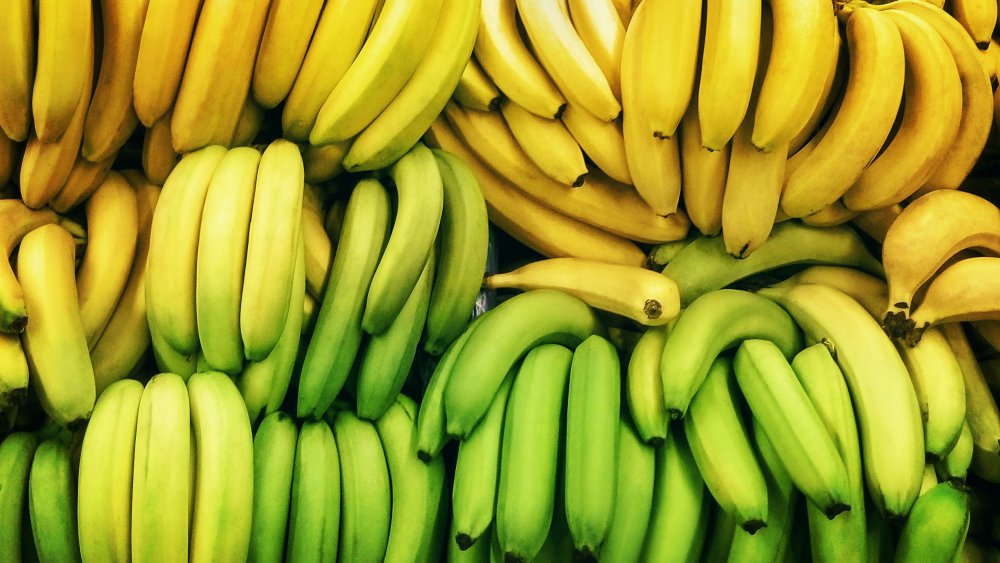Why You Should Think Twice Before Buying Pre-Ripened Fruit
When you walk into a produce section of a supermarket, it's difficult not to fall prey to the siren song of all the beautiful colored fruits and vegetables beckoning to be washed and eaten. It makes you want to buy a little of everything. But before you start rifling through the peaches, bananas, avocados, and whatever else is on your grocery list, you should probably take a couple of squeezes and take note of how firm or squishy it is. If it has been pre-ripened, it might not last very long on your countertops
Per Produce Business, many retailers use ripening programs to increase their sales, particularly with bananas, avocados, mangos, papayas, and honeydews. For example, Walmart sends bananas to ripening centers before they go to their stores. Gary Campisi, senior director of quality control in the Fresh Grocery Division Walmart in Bentonville, Arkansas, told the publication, "If I can deliver a Stage 4 banana — 75 percent yellow, 25 percent green — every day to every store, by the nature of that flow, I am offering customers two colors because there will be some residual from previous shipments for customers who want riper fruit." Clearly this strategy works as stores are seeing an increase of 25 percent to 30 percent in sales. While supply and demand might be fueling this trend, caveat emptor when it comes to buying pre-ripened fruit. You may want to think twice before plunking down your dollars on this purchase and here's why.
Inconsistency can ruin the pre-ripened fruit experience
Fresh Plaza explains fruit can be pre-ripened through a process known as pre-conditioning, which is when fruit that has been stored in a cold place is warmed up. A plant hormone called ethylene, which occurs naturally as the fruit ripens – and thus won't insult anyone's green sensibilities and that is – is applied to the warmed-up fruit. This in turn helps fruits to ripen so they are ready to eat when they hit grocery store shelves.
But according to Super Market News, the problem lies in a single concept: consistency. Supermarkets are in business to make money. So, if they are buying pre-ripened fruit at a high price and then have an opportunity to buy the fruit that might not be pre-ripened at a lower price, it could result in the wrong mix of under-ripe, ripe fruit, and even over-ripened fruit. Why is this a problem? Fruit that's spoiled or rock-hard can become a concern for both the seller and the buyer. Customers want to know they can count on their grocery store to have ripened fruit they can use when they want it. Still, some believe that addressing this problem is a matter of teaching consumers tips and tricks to discern when a fruit is ripe and how to store it properly, whether that means in the refrigerator or at room temperature for maximum enjoyment.

